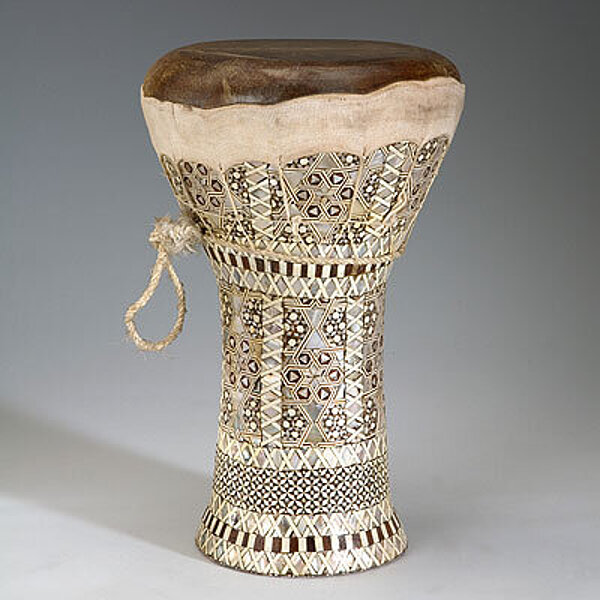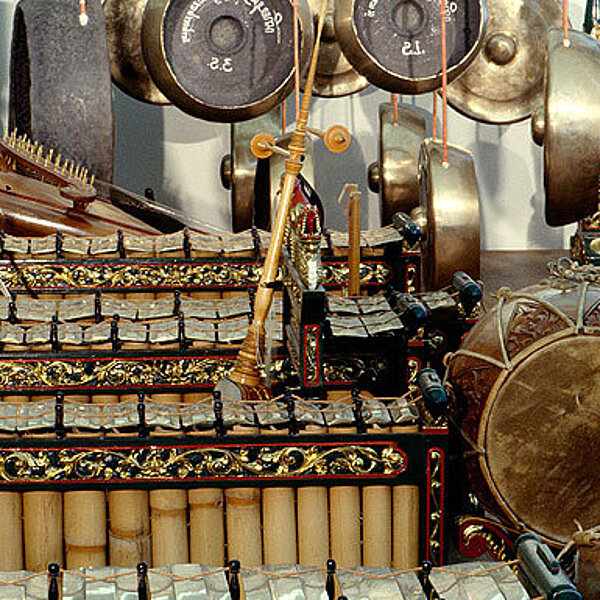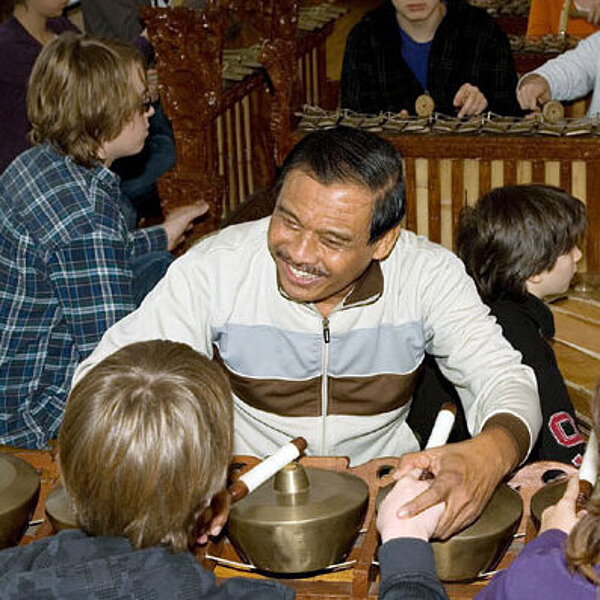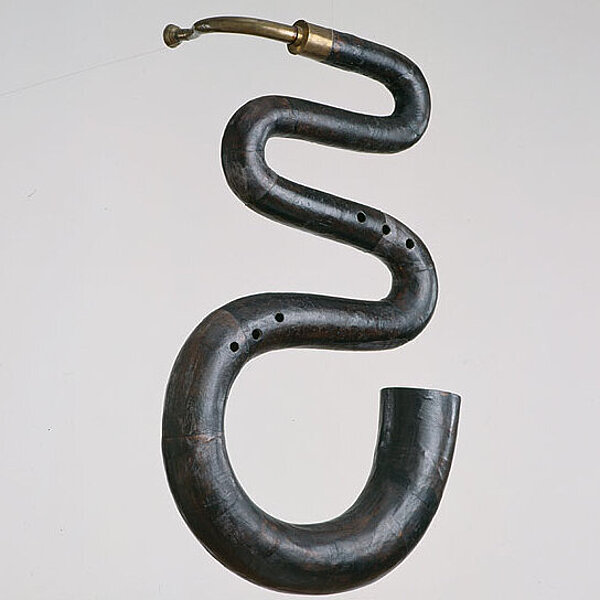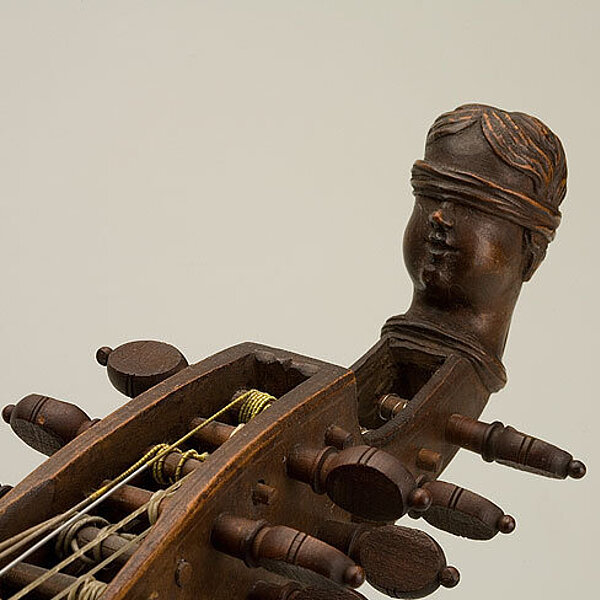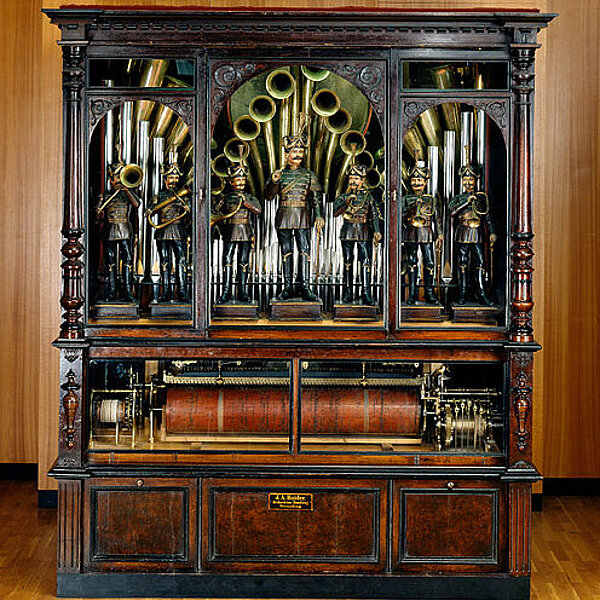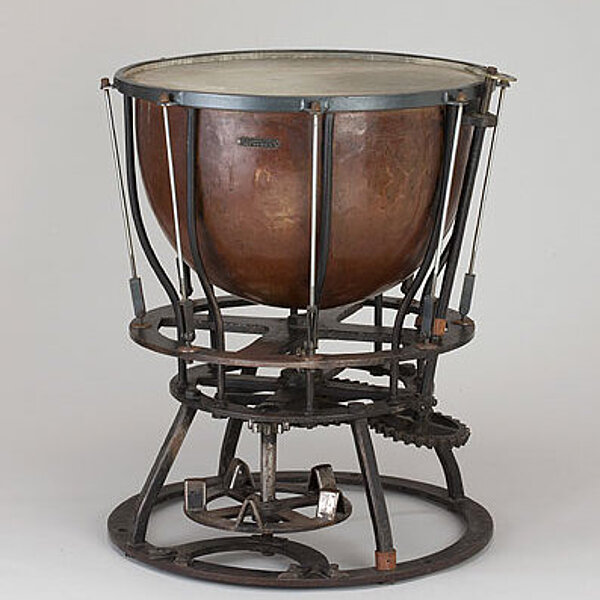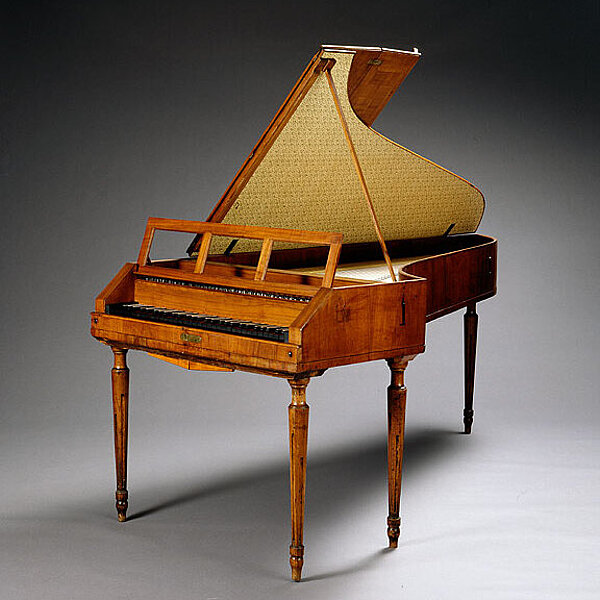
Music
A "sound museum" is what the Munich collector and founder of the "Städtische Musikinstrumenten-Sammlung" (Municipal Musical Instrument Collection), Georg Neuner (1904-1962), had in mind. Along with the beauty and multiformity of musical instruments, it was their use in diverse cultures that served as the criterion for Neuner’s collecting, which embraced every conceivable kind of sound production.
In our time of "depersonalized" and virtualized sound, this type of approach is more important than ever. Few people know why the sounds of an Indian sitâr or a Ugandan amadina xylophone seem so strange to our ears. Fewer still understand the acoustic secrets of Javanese gongs or a German viola d’amore, or indeed which developments were necessary before today’s elaborate, and often highly mechanical, orchestral instruments could be crafted. Long before the advent of mp3 and record players, our Western world sought numerous ways of mechanizing music, as music boxes and orchestrions testify.
Besides well-known instrument makers from Munich like Michael Saurle (1772-1845, brass instruments), Theobald Böhm (1794-1881, transverse flutes) and Hermann Hauser (1882-1952, strings), the Music Collection also features international masters. These include the brothers Antonius and Hieronymus Amati (1555/56-1640, violin), Adolphe Saxe (1814-1894, an entire set of saxophones) and Georges Cousineau (1733-1800, several harps).
The collection also encompasses instruments whose makers, while little known in the West, are revered in their home countries. Among these artists are Empu Resowigno (gamelan, Wirun, Java/Indonesia, 1986), Kanai Lal Das (sitar lute, Calcutta/India, 1940)) and Amin and Sayyed Amin (oud lute, Cairo/Egypt, 1980). However, the makers of the vast majority of instruments are unknown – nameless people whose ingenuity enabled them to create incredibly formed instruments and outstanding sounds with the most basic of materials. Of the 6,000 musical instruments and sound sources in the present collection, more than half are of non-European origin, exemplifying the global vision of the collection’s founder. It is this diversity that renders the Collection Music at the Münchner Stadtmuseum one of the finest of its type.
Plan Your Visit
Opening hours
Although the Münchner Stadtmuseum's exhibitions closed on January 8, 2024, for a complete renovation, the cinema and the Stadtcafé will remain open to visitors until June 2027.
Information to Von Parish Costume Library in Nymphenburg
Filmmuseum München – Screenings
Tuesday / Wednesday 6.30 pm and 9 pm
Thursday 7 pm
Friday / Saturday 6 pm and 9 pm
Sunday 6 pm
Contact
St.-Jakobs-Platz 1
80331 München
Phone +49-(0)89-233-22370
Fax +49-(0)89-233-25033
E-Mail stadtmuseum(at)muenchen.de
E-Mail filmmuseum(at)muenchen.de
Ticket reservation Phone +49-(0)89-233-24150

